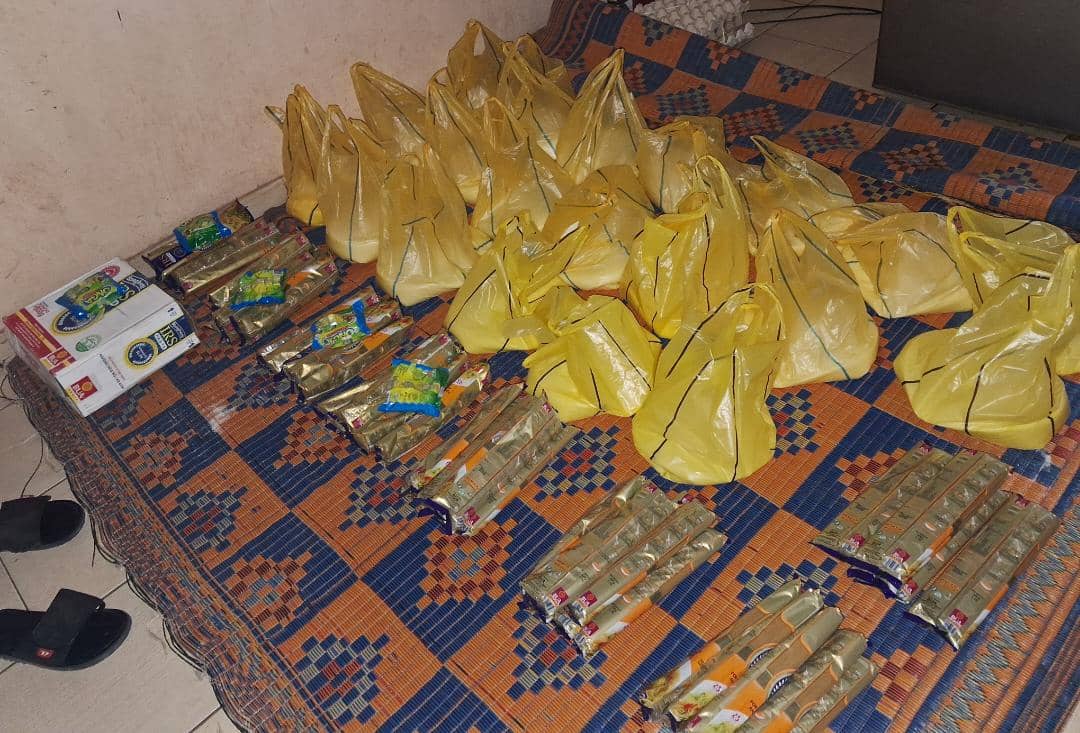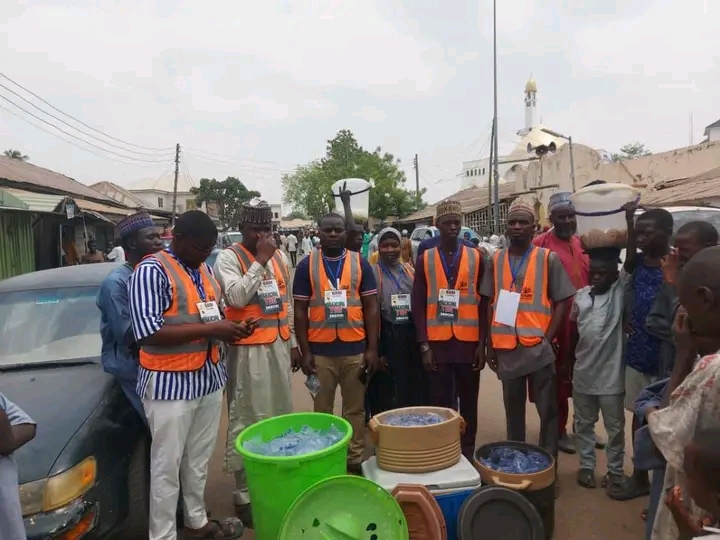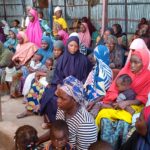Every Sunday, sprawled on his raffia mat, Lawal Musa would tune in to the news at 10p.m. on Rock FM Jalingo. This Sunday was no different, as the anchor announced the advent of Ramadan following reports from the Nigerian Supreme Council for Islamic Affairs. Unlike before, this news didn’t bode well for Musa and his wife.
As Musa explained to Prime Progress, soaring food costs had taken a toll on his finances such that his carpentry work didn’t bring in as much money to buy all the groceries needed for Ramadan.
“We were able to buy some essentials, but not all. Despite the hardship, we are still grateful to God for provision,” said Musa, who lives in the capital city of Jalingo.
Observed in the ninth month of the Islamic Hijri calendar, Ramadan is a sacred time of reflection and spiritual growth for Muslims across the world. “Ramadan is a chance to deepen our connection with Allah. It’s a time to remember the revelation of the Qur’an, a gift of guidance bestowed upon Prophet Muhammad,” noted Imam Abubakar Isa, a cleric in Jalingo.
Ramadan is one of the five pillars of Islam, and during the month, Muslims don’t eat or drink anything from dawn to sunset. It’s a test of discipline that fosters increased prayer, seeking forgiveness, and strengthening faith. Every evening, after the sun goes down, families break their fast, sharing dates, fruits, or whatever meal they can afford.
“Ramadan is also a month of sharing love, peace, and helping those in need,” Imam Isa said.
This year’s Ramadan presented unique challenges for households worldwide. A report from Islamic Relief indicates that it will be the hardest Ramadan ever. At least 600 million people in Muslim countries won’t have enough food during this holy month. Many of them, over a third, already suffer from hunger because of war, climate change, and inequality.
For Nigerian families like Musa’s, the stakes are even harder. Compared to last year, food prices skyrocketed in February this year, according to the National Bureau of Statistics. With a 13.57% increase, foods such as bread, grains, vegetables, fish, and even coffee and tea are becoming out of reach for low-income earners.
Led by their faith, some individuals and charities are lending a hand to families like Musa’s by offering meals through the month, with the hope of a divine reward.
Musa confessed that there wasn’t any carpentry work available, and even if there was, his age made it difficult to muster the energy, especially during Ramadan.
“During the first 3 days, we struggled to cope with the hardships. Much gratitude to Allah, we were able to get help from neighbours who have much to give out,” 44-year-old Musa said.
A helping hand
As a charity, the Umayya Danejo Foundation provides food and cash support to widows, orphans, almajiri children, and families in need.
Although the foundation typically doles out such food items as rice, seasoning cubes, spaghetti, and local drinks like zobo and kunun zaki, rising food costs have cramped their ability to help. Nevertheless, their efforts remain a lifeline for many families in Jalingo, including Musa’s.
“This year, we have gone beyond just food packages and cash donations. Throughout Ramadan, we have been cooking meals daily to distribute to widows, orphans, almajiri children, and even those less fortunate on the streets,” Danejo, who leads the foundation, explained.
Replicating the efforts
Five years ago, Shamsiyya Barde pooled together 30 of her friends, comprising men and women. Together, they would raise money for food packages to be distributed to families during Ramadan across Potiskum in Nigeria’s Yobe State, using a WhatsApp group called “Helping the Needy.”
After years of successful food donations, Barde and her team had to seek collaboration from Humans of Northeast, a registered charity, as a hike in food prices ravaged the country.
“Before we used to buy a carton of Spaghetti for less than N4,000 or N5,000. But this year, the cheapest brand is sold at N12,800 per carton and we have observed that many families can’t afford a single pack of spaghetti, which is now N750,” Barde told Prime Progress.
With the partnership, Barde’s food drive managed to impact at least 52 households this Ramadan. Thirty-two received packages containing five pieces of spaghetti each, while the remaining 20 got macaroni. Additionally, they distributed cold water on a daily basis to tsangayas (Qur’anic learning centers) as well as the General Hospital in Potiskum.

Adapting to challenges
Asma’u Jibril, founder of Strive For Jannah Charity Foundation, described how their Ramadan efforts have changed. Where they would prepare rice and beans with high-quality ingredients for families in need, rising food costs have forced them to rely on cheaper diets like yam and sweet potatoes.
While their budgets have tightened, Jibril explained that they have strived to maintain their impact. Their Ramadan budget typically allows them to support 250 families within Potiskum. Although this year they faced a significant increase in need, they still managed to help as many families as possible within their budget constraints.
“While we go about cooking and distributing the food, we have encountered challenges due to the sudden heatwave that spoiled some of our stored yams and sweet potatoes, forcing us to make unplanned purchases,” Jibril told Prime Progress.
Beyond their individual challenges, Jibril, Barde, and Danejo, all shone resilience as they have redoubled their efforts to bring joy to families facing soaring food costs.
Danejo said that they have had to adjust their shopping quantities due to limited donations compared to last year. “So it was very difficult for us to cope this time around. But by Allah’s grace, we did what we could with what we had,” she added.
Barde, on the other hand, reminisces about past Ramadans, when their packages would contain a mudu of sugar, maggi seasoning, ten pieces of spaghetti, and two liters of cooking oil. “We hope to reach more people next Ramadan, God’s willing,” she said.
Governments attempts
A report by Daily Trust states that seven states in northern Nigeria budgeted a massive N28.3 billion for feeding programs for this year’s Ramadan. The statistics include Katsina (N10 billion), Sokoto (N6.7 billion), Kano (N6 billion), Jigawa (N2.83 billion), Kebbi (N1.5 billion), Niger (N976 million), and Yobe (N178 million).
These programs aim to distribute food to the less privileged and vulnerable during the holy month. Kano, for example, targets four million people across 44 local government areas, with meals served daily at mosques, schools, and hospitals. Jigawa plans to provide food to 182,700 people daily at 609 feeding centers.
While some clerics support these initiatives as a way to help those in need, others raise concerns about accountability. Mismanagement and corruption, they worry, could prevent the funds from reaching their intended beneficiaries.
As government initiatives and charitable efforts provide relief for families like Musa’s during the holy month, the bane of hunger remains palpable as Ramadan comes to an end.
In sustaining these efforts, experts suggest the implementation of innovative solutions and robust support systems that will ensure families like Musa’s don’t just survive Ramadan but can feed all year round.
Lawal Musa, a carpenter in Jalingo, and his wife face hardships during Ramadan due to soaring food costs. His income from carpentry is insufficient to buy all necessary groceries, though grateful for what they could obtain. Ramadan, a significant period of reflection and spiritual growth for Muslims, has posed unique challenges this year with a report indicating that over 600 million people in Muslim-majority countries face food shortages.
The Nigerian National Bureau of Statistics reported a 13.57% rise in food prices, making staples like bread and grains unaffordable for many. Charities, including the Umayya Danejo Foundation, are stepping in to provide meals and support, though they too struggle with rising costs. Other groups, like Shamsiyya Barde's team, and Asma’u Jibril’s Strive For Jannah Charity Foundation, are also adapting to these challenges by relying on cheaper diets and tighter budgets.
Additionally, seven northern Nigerian states have allocated N28.3 billion for feeding programs during Ramadan. While these efforts aim to distribute food to the needy regularly, some clerics worry about potential mismanagement. Experts suggest the need for innovative, robust solutions to ensure sustainable food support beyond Ramadan.






